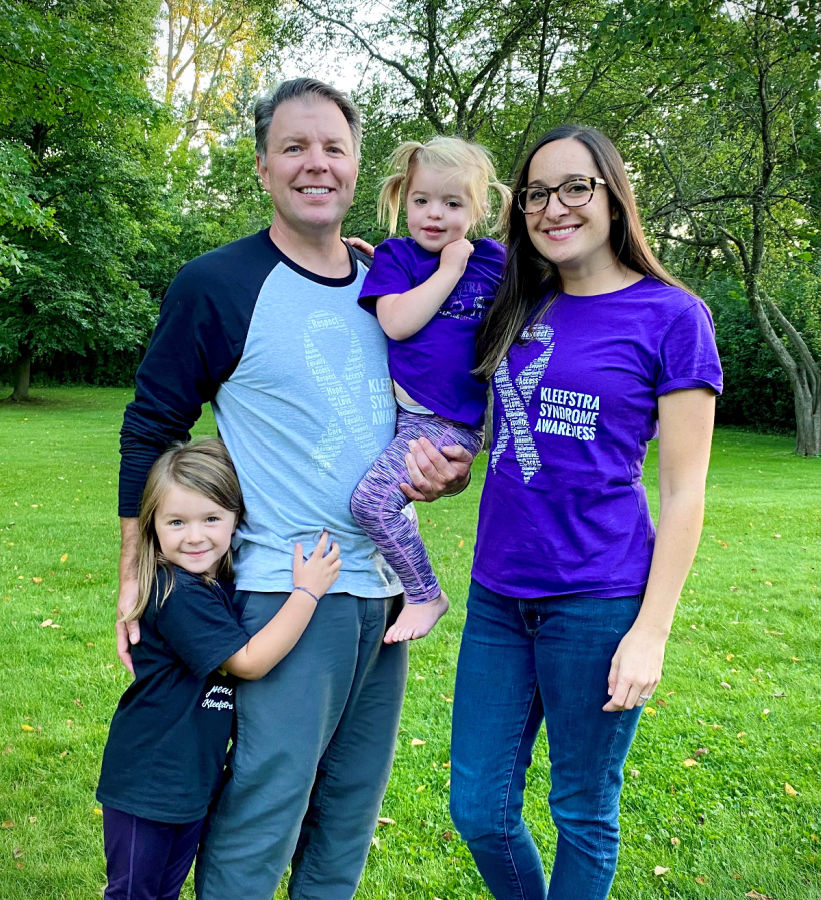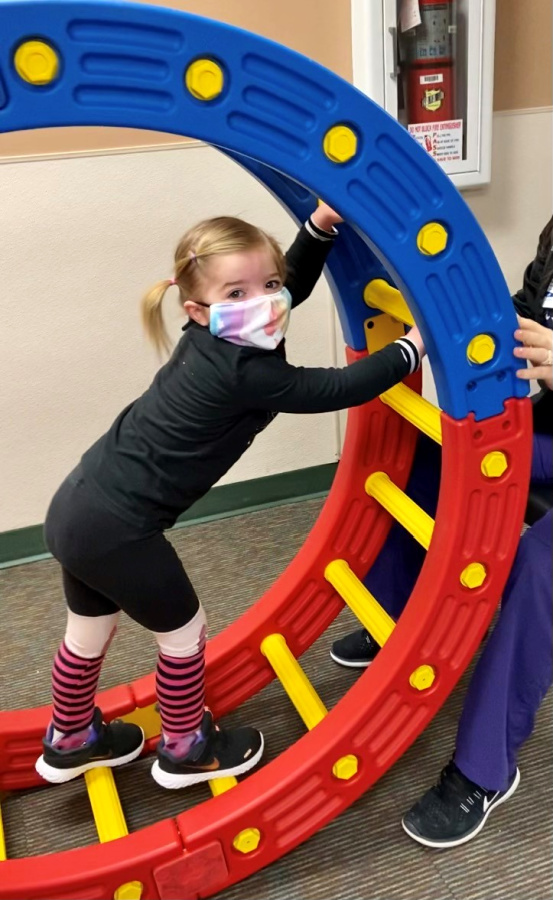
In many ways, Wynne Lockwood is your typical toddler. The 3-year-old loves yogurt, swimming and playing with bubbles, and she idolizes her 6-year-old sister, Josie.
However, Wynne is atypical in that she is one of only 500 people in the world with Kleefstra Syndrome (KS), an extremely rare disease caused by the mutation or deletion of one gene (EHMT1). KS’s features include low muscle tone, sleep disorders, limited or absent speech, and intellectual disabilities.

Since Wynne’s diagnosis in July, her parents — Matt Lockwood, associate vice president for university communications at Wayne State, and his wife Maria, a labor and delivery nurse at St. Joseph Mercy Oakland — have been working to raise awareness about Kleefstra Syndrome and other rare diseases. The last day of February each year is Rare Disease Day.
“When your child is diagnosed with a rare disease, especially an extremely rare one, after a thorough search of the internet you realize that it is your responsibility as a parent to drive progress toward treatments and a cure for your child,” said Matt Lockwood. “You don’t have a big, established entity to rely on to raise funds and drive research.”
Fortunately, after Wynne’s diagnosis, the Lockwoods found a group of like-minded parents who had just started a nonprofit called IDefine that is dedicated to identifying treatments and cures for KS and other intellectual disabilities. Matt Lockwood works closely with the group supporting its communications efforts.
In less than a year, IDefine has partnered with Boston Children’s Hospital to establish a Kleefstra Clinic, held its first international conference on Feb. 4, and launched a patient registry for future clinical trials.

Most rare diseases are genetic or have a genetic component, and more than 90% of them are without an FDA-approved treatment.
“This underscores the importance of research universities like Wayne State,” said Matt Lockwood. “If we’re going to find a cure for Wynne and others with intellectual disabilities, it is most likely going to be a gene therapy that comes about as the result of basic science research and a clinical trial.”
The Lockwoods are in a race against time. About half of people with KS experience severe regression and/or psychiatric disorders after they hit puberty.
“Wynne goes to speech, occupational and physical therapy a dozen times a week,” said Maria Lockwood. “She works so hard. It would be devastating to see all of her progress wiped away.”
Because the EHMT1 gene that causes KS has been studied extensively, it is viewed as a great model for a genetic therapy and could benefit other intellectual disabilities.
This Rare Disease Day, if you would like to contribute to support research into a cure for KS and other intellectual disabilities, you can do so by becoming one of Wynne’s Warriors.
